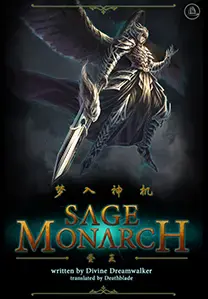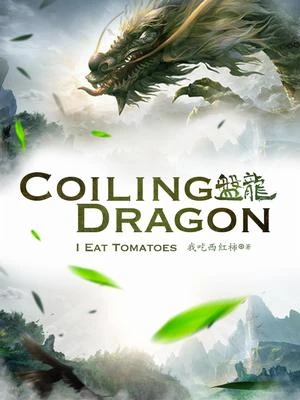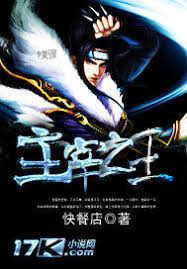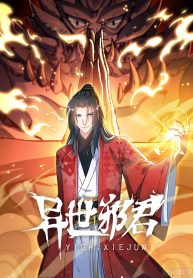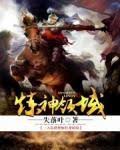The Story in 3 Sentences
A pampered young master, Yang Qi, throws away his future for love, only to be betrayed and left for dead with his cultivation shattered, his world reduced to ashes.
Struck by divine lightning, he awakens with a godlike technique, transforming his crippling defeat into a launchpad for ruthless ascension, his every step fueled by vengeance and the mystery of his mother’s disappearance.
He climbs from the ruins of his clan to challenge heavens and gods, his journey a relentless storm that reshapes worlds, until he stands alone at the apex, a monarch forged in the fires of betrayal and ambition.
Why It Stands Out
1. The Godly Power Fantasy Perfected
This novel doesn’t shy away from its core; it embraces and elevates it. Yang Qi’s ascent is a masterclass in wish fulfillment, granting him divine techniques and overwhelming power early on. The thrill isn’t just in his victories, but in how he wields his strength with cold, imperious sarcasm, turning every arrogant challenger into a stepping stone. It’s a raw, unapologetic power trip executed with such conviction that it becomes mesmerizing, a blueprint for the genre that many others follow.
2. A Web of Intrigue Beyond the Fistfights
Moving past its initial revenge arc, the story blossoms into a complex tapestry of political maneuvering and cosmic-scale worldbuilding. The narrative delves into sect politics, ancient conspiracies, and the hidden histories of powerful clans, forcing Yang Qi to outthink as much as he out-fights. This layer of strategic depth, as noted by fans who saw the story improve steadily, transforms it from a simple brawl into a compelling saga where every alliance and betrayal carries weight, keeping readers emotionally invested far beyond the initial chapters.
3. The Cultivation Tropes, Deconstructed and Rebuilt
Sage Monarch is self-aware, often trivializing the very clichés it employs. The endless “junior generation” conflicts common in xianxia are reframed not as tedious filler, but as essential “tempering” for the protagonist, pressure that fuels his breakthroughs. It subverts expectations by allowing genuine friendships and even turning enemies into allies, offering a refreshing complexity rarely seen in stories where everyone is either a sycophant or a sworn enemy. It’s a celebration and a subtle critique of the genre, all rolled into one epic package.
Characters That Leave a Mark
There’s Meng Qingshan – a formidable young lord from the ancient Meng Clan, whose lineage stretches back to Great Sages, representing the old-world powers Yang Qi must inevitably confront and surpass.
And Void Mother, a being of immense, godly power who steps into the eighth stage of cultivation, her presence signifying the cosmic scale of the threats and alliances Yang Qi navigates in the higher realms.
The Flaws Fans Debate
The protagonist’s personality becomes diluted as his power grows, losing some of the initial sharpness and depth in favor of an increasingly flat, invincible archetype.
The story leans heavily on well-worn cultivation clichés, from the crippled genius to the mysterious missing mother, which can feel formulaic and predictable for seasoned genre readers.
The narrative pacing can be uneven, with long stretches of exposition or internal monologue that slow down the otherwise breakneck action and progression.
Must-Experience Arcs
Ch. 1–50: The Fall and Rise of Yanhaven – A pampered heir’s world crumbles in betrayal, leading to a near-death experience under lightning that births the Hell-Crushing Godmammoth technique, setting him on a path of vengeance against his clan and his treacherous lover.
Ch. 500–800: The Hanging Mountain Gambit – Yang Qi navigates the treacherous politics of the Hanging Mountain, his mother’s homeland, forming uneasy alliances and facing powerful old-timers, proving his strategic mind is as sharp as his fists in a complex web of intrigue.
Ch. 1500–1601: The Final Blaze of Glory – The cosmic war reaches its zenith as Yang Qi confronts the ultimate powers, culminating in the end of the god world itself, where he stands as the final monarch, his journey from a broken youth to the apex of existence complete.
Killer Quotes
“Sorry to disappoint you, but not only will I not live like an ordinary person, I’m going to become the type of famed individual who shakes the entire world.”
“Quit your prattling and just die!” Yang Qi said. He thrust out a palm that burned with sagefire.
Cultural Impact
The novel’s active and passionate comment sections, often boasting 60-70 comments per chapter, became a hallmark of its community, fostering deep discussion and fan theories.
It is frequently cited in power-scaling debates and versus battles within online forums, with fans meticulously analyzing Yang Qi’s feats against characters from other popular series.
As an older, foundational xianxia work, it established many tropes and narrative structures that newer webnovels continue to emulate, solidifying its place as a genre milestone.
Final Verdict
Start Here If You Want:
The pure, unadulterated thrill of watching an underdog become an unstoppable god-king, crushing every obstacle with divine power.
A sprawling epic that evolves from personal revenge into a complex saga of cosmic politics and world-shattering battles.
A story that knows its genre inside out, delivering classic tropes with such energetic conviction that they feel fresh and exciting.
Study If You Love:
The intricate mechanics and escalating hierarchies of cultivation systems, pushed to their absolute, universe-bending limits.
The evolution of the xianxia genre, seeing how foundational works like this one shaped the tropes and narrative arcs that followed.
Narratives that explore the philosophical weight of ultimate power and the isolation that comes with standing at the pinnacle of existence.
Avoid If You Prefer:
Nuanced, deeply flawed protagonists, as Yang Qi’s character can become archetypal and his victories sometimes feel preordained.
Stories that avoid genre clichés, as this novel embraces and amplifies them as part of its core appeal.
Narratives with tight, fast-paced plotting, as the story can delve into lengthy expositions and internal reflections common in its era of webnovel writing.
